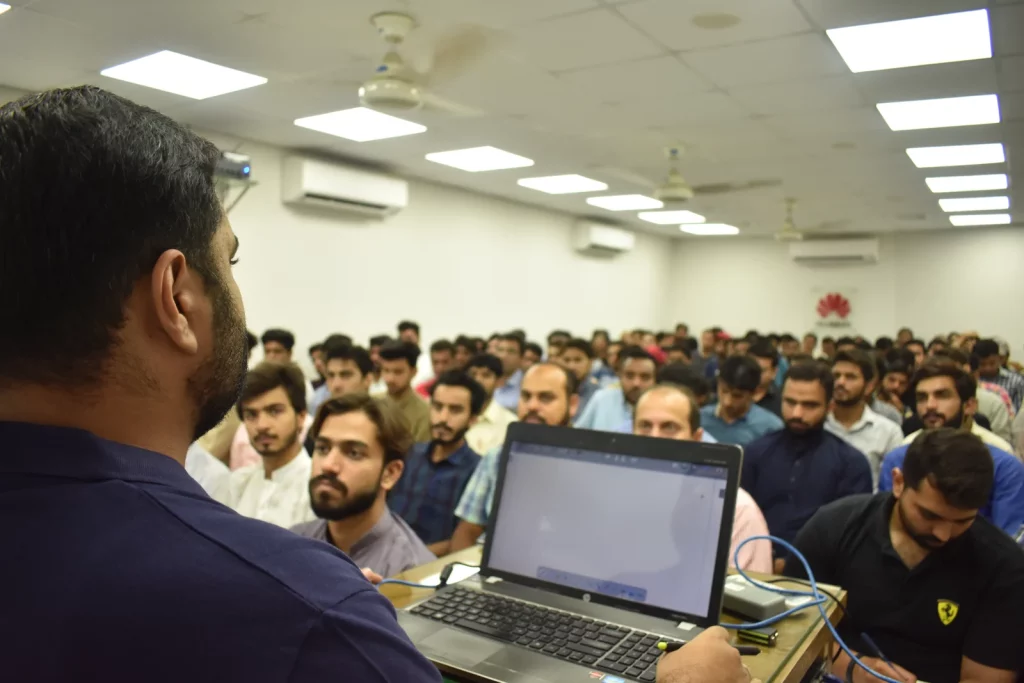Corvit Systems- Timings 9 Am to 9 Pm
CCNA Exam v1.1 (200-301)
Technology has changed the world tremendously, and no survival is possible for any organization to run its operations smoothly and manage business activities efficiently if you do not use technology. And when discussing organizational infrastructure equipped with technology, networking must be addressed. Only networking professionals ensure all data transfers and communications seamlessly and securely among various devices and networks.
While talking about the training and courses to make you an experienced networking specialist, The Cisco Certified Network Associate (CCNA) can be considered the most sought-after certification globally. After getting this certification, networking professionals get the required knowledge and skills to design, configure, and troubleshoot networks.
Corvit Systems offers the Best CCNA Training to those who want this certification to develop their career in networking. This course is designed by our experts so that the learners not only become successful in getting CCNA Enterprise Certification but also develop knowledge and skills related to configuration, troubleshooting, and managing the most advanced and enterprise-level networking infrastructures. CCNA course outline designed by Corvit Systems focuses on preparing the learners to deal with complex enterprise networks comprehensively through the latest networking technologies and practices regarding developing, deploying, and securing networking infrastructures

Course Details
Module 1 Network Fundamentals
- Explain the role and function of network components characteristics.
- Describe characteristics of network topology architectures.
- Compare physical interface and cabling types.
- Identify interface and cable issues.(collisions, errors, mismatch duplex)
- Compare TCP to UDP.
- Configure and verify IPv4 addressing and subnetting.
- Describe private IPv4 addressing.
- Configure and verify IPv6 addressing and prefix.
- Describe IPv6 address types.
- Verify IP parameters for Client OS.
- Describe wireless principles.
- Explain virtualization fundamentals.
- Describe switching concepts.
MODULE #2 (Network Access)
- Configure and verify VLANs (normal range) spanning multiple switches.
- Configure and verify inter switch connectivity.
- Configure and verify Layer 2 discovery protocols.
- Interpret basic operations of Rapid PVST+ Spanning Tree Protocol.
- Describe Cisco Wireless Architectures and AP modes.
- Describe physical infrastructure connections of WLAN components.
- Describe network device management access.
- Interpret the wireless LAN GUI configuration for client connectivity.
MODULE #3 IP CONECTIVITY
- Interpret the components of routing table.
- Determine how a router makes a forwarding decision by default.
- Configure and verify IPv4 and IPv6 static routing.
- Configure and verify single area OSPFv2.
- Describe the purpose, functions, and concepts of first hop redundancy protocols.
Module 4 IP Services
- Explain how Spanning Tree Protocol (STP) and Rapid Spanning.
- Tree Protocol (RSTP) work.
- Describe, implement, and verify Virtual Local Area Networks.
- (VLANS) and trunks.
- Configure link aggregation using EtherChannel.
- Describe the purpose of Layer 3 redundancy protocols.
- Describe the application and configuration of inter-VLAN routing.
- Describe the operation, benefits, and limitations of static routing.
- Explain the basics of dynamic routing protocols and describe.
- components and terms of Open Shortest Path First (OSPF).
MODULE #5 (Security Fundamentals)
- Define key security concepts.
- Describe security program elements.
- Configure and verify device access control using local passwords.
- Describe security password policies elements.
- Describe IPsec remote access and site-to-site VPNs.
- Configure and verify access control lists.
- Configure and verify Layer 2 security features.
- Compare authentication, authorization, and accounting concepts.
- Describe wireless security protocols (WPA, WPA2, and WPA3).
- Configure and verify WLAN within the GUI using WPA2 PSK.
Module 6 Automation and Programmability
- Explain how automation impacts network management.
- Compare traditional networks with controller-based networking.
- Describe controller-based, software defined architecture.
- Explain AI (generative and predictive) and machine learning in network operations.
- Describe characteristics of REST-based APIs (authentication types, CRUD, HTTP verbs, and data encoding).
- Recognize the capabilities of configuration management mechanisms, such as Ansible and Terraform.
- Recognize components of JSON-encoded data.
Why Corvit Systems for CCNA V1.1 (200-301) Course?
To become a networking professional or join the networking field because you are interested, we recommend getting admission to our CCNA training course at Corvit Systems. The CCNA training allows you to enhance your skills and expertise in managing and controlling networks and implement updates when required. Moreover, Corvit Systems also arranges on-site real-time training for all learners to give them the real experience to manage the networking infrastructure efficiently. So, to pursue your career as a networking professional, get admission to our specially-designed CCNA course offered by Corvit Systems.

